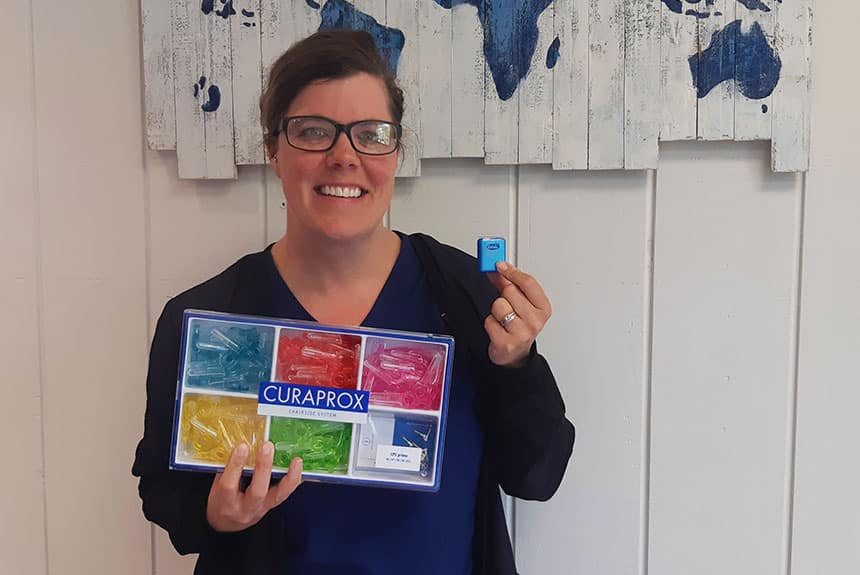Maintaining optimal oral hygiene is essential for preventing cavities and gum disease. While traditional flossing is effective, some individuals may find it challenging or uncomfortable. Fortunately, several alternatives to flossing that can help keep the spaces between your teeth clean and healthy.
Your Alternatives To Flossing
1. Interdental Brushes
Interdental brushes are small, bristle-tipped tools designed to clean between teeth. They come in various sizes to accommodate different gaps and are particularly useful for individuals with braces or dental work. Brands like Curaprox offer colorful and effective options that are easy to use and portable.
2. Water Flossers
Water flossers, such as the Waterpik, use a stream of pulsating water to remove food particles and plaque from between teeth and below the gumline. They are ideal for those who dislike traditional flossing or have orthodontic appliances. The ability to use warm water makes them suitable for individuals with sensitivity to cold. Regular use can lead to improved gum health.
3. Air Flossers
Air flossers utilize bursts of compressed air mixed with tiny droplets of water to clean between teeth. They offer a quick and gentle alternative to traditional flossing, making them suitable for those seeking a less invasive method. The choice between air and water flossers depends on personal preference.
4. Floss Picks
Floss picks are handheld tools that hold a piece of dental floss taut, making it easier to maneuver between teeth. They are convenient for on-the-go use and can be more comfortable for individuals with limited dexterity.
5. Dental Tape
Dental tape is a broader and flatter version of traditional floss, making it easier to handle and less likely to shred. It is particularly beneficial for individuals with wider gaps between their teeth.
Choosing the Right Alternative
The best interdental cleaning method is the one you will use consistently. It’s important to select a tool that fits comfortably into your daily routine and addresses your specific dental needs. Consulting with your dental professional can provide personalized recommendations to ensure optimal oral health.




